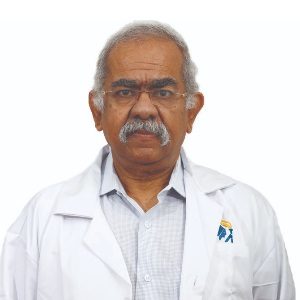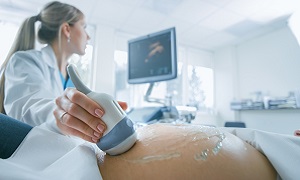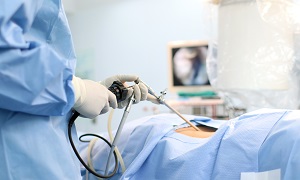Best Appendicitis Treatment Doctors in India
- Surgical Gastroenterologist, Chennai, India
- Over 27 years’ experience
Profile Highlights:
- Dr. Surendran R is an experienced gastroenterologist from Chennai, Tamil Nadu.
- He has been rewarded for his contributions to the field several times. He received The Best Doctor award from the Tamil Nadu government (2002) in his name.
- Being a gastroenterologist, he specializes in treating patients with problems such as Bowel Obstruction, Pancreatic diseases, Esophagus disorders, Fistula treatment, etc.
- Gastroenterologist and GI Medicine Specialist, Chennai, India
- Over 23 years’ experience
Profile Highlights:
- Dr. Revathy Shanmugam is an experienced Gastroenterologist in Tamil Nadu, having an experience of 23 years in the management of GI disorders, Training & Teaching.
- She is highly skilled in the services like Liver Disease Treatment and Inflammatory Bowel Disease (IBD) Treatment.
- She has published various scholarly works in many National & International Publications of Medical Gastroenterology.
- Gastroenterologist and GI Medicine Specialist, Chennai, India
- Over 32 years’ experience
Profile Highlights:
- Dr. Hariharan Muthuswamy is a veteran Gastroenterologist and Hepatologist in India with 22 years of experience (specialist).
- Dr. Muthuswamy treated his patients with Non-Surgical Piles treatment, Liver Disease Treatment, Hepatitis E, Hepatitis A Treatment and Hepatitis B Treatment, Hemorrhoids Treatment, Colonoscopy, Stomach, and Intestinal Treatments, etc.
- He has a special interest in Capsule Endoscopy, Therapeutic Endoscopy, GERD, and Irritable Bowel Syndrome (IBS).
- Gastroenterologist and GI Medicine Specialist, Chennai, India
- Over 32 years’ experience
Profile Highlights:
- Dr. Mohan A T is a veteran GI medicine specialist in India with an experience of 32 years.
- Dr. Mohan, an alumnus of Madras University, is the Co-Ordinator of the Indian Society of Enteral and Parenteral Nutrition.
- He is an expert in treating Gastritis, acidity, Ulcerative Colitis, and many other Intestinal and bowel-related Treatments. In addition to these, he offers Colonoscopy, Gastroscopy, and Endoscopy.
- Gastroenterologist and GI Medicine Specialist, Chennai, India
- Over 15 years’ experience
Profile Highlights:
- Dr. Piramanayagam P is one of the young Gastroenterologists in India, having an experience of 15 years in the field.
- The doctor offer services like Gall Bladder (Biliary) Stone treatment, IBS treatment, Acidity Treatment, Endoscopy, and stomach and intestine dysfunction.
- He published many review articles and books under his name.
- Gastroenterologist and GI Medicine Specialist, Chennai, India
- Over 39 years’ experience
Profile Highlights:
- Dr. Sarojini Parameswaran is one of the renowned Gastroenterologist with an overall experience of 39 years.
- Dr. Parameswaran is brilliant and quick with diagnosis. She has 22 years of specialist experience.
- Gastroenterologist and GI Medicine Specialist, Chennai, India
- Over 24 years’ experience
Profile Highlights:
- Dr. Seshadri Venkatesh P is a well-known Gastroenterologist in India, having 24 years of experience in Stomach and Intestine disorders.
- Dr. Seshadri acquired proficiency in managing Bladder Cancer surgery, hemorrhoids, Irritable Bowel Syndrome (IBS) Treatment, etc.
- He holds membership in Tamil Nadu Medical Council.
- Gastroenterologist and GI Medicine Specialist, Chennai, India
- Over 40 years’ experience
Profile Highlights:
- Dr. Usha Srinivas is a Gastroenterologist in India with an experience of 40+ years in GI in medicine and academics.
- Patients visit her for consultation and treatment of abdominal pain, Gall Bladder (Biliary) Stone, Gastroenteritis, Jaundice, Colonoscopy, Steatosis, Constipation Treatment, Hepatitis C Treatment, Hepatitis E Treatment, Hemorrhoids Treatment, Piles Treatment (Non-Surgical), Gastritis Treatment, Ulcerative Colitis Treatment, and others.
- Gastroenterologist and GI Medicine Specialist, Chennai, India
- Over 18 years’ experience
Profile Highlights:
- Dr. Preethi M is one of the best gastroenterologists in India, with 18 years of expertise.
- Dr. Preethi received many awards for her contribution to the field.
- She offers consultation for Irritable Bowel Syndrome (IBS), Hemorrhoids, Endoscopy, female problems, and other gastrointestinal issues.
- Gastroenterologist and GI Medicine Specialist, Chennai, India
- Over 23 years’ experience
Profile Highlights:
- Dr. Ubal Dhus is a GI specialist doctor in South India who is proficiently managing Gastroenterological disorders for the past 23 years.
- He acquired his medical degree from Madras University, Chennai, and served people with Hemorrhoids Treatment, and Irritable Bowel Syndrome (IBS) Treatment.
Best Appendicitis Treatment Hospitals in India.
Venkateshwar Hospital, Dwarka, New Delhi
- City: New Delhi, India
Hospital Highlights:
- State-of-the-art technology and devoted healthcare professionals have been brought together under one roof at Venkateshwar Hospital to provide genuine medical care. The hospital’s professionals work together as a team to deliver the best possible treatment to their patients, using the most sophisticated equipment and information technology.
- Venkateshwar Hospital’s mission is to attain global excellence in healthcare by employing evidence-based, ethical clinical practices and cutting-edge technology by a team of highly skilled experts.
MGM Healthcare, Chennai
- City: Chennai, India
Hospital Highlights:
- Located in Chennai, India, MGM Healthcare is a top multispecialty hospital that provides all medical services under one roof.
- Since its founding in 2019, MGM Healthcare has quickly become a leading national referral centre, creating several innovative flagship initiatives.
- MGM Healthcare combines next-generation medical and digital technologies to provide better patient results.
- With 12 centres of excellence, more than 400 inpatient beds, 100 intensive care unit beds, and 24/7 emergency care, MGM Healthcare leaves no chance in redefining the patient experience in Chennai.
- MGM Healthcare boasts 250+ expert doctors across 30+ departments, including Cardiology, Pulmonology, Neurology, Obstetrics & Gynaecology, and more.
- They house 12 specialized Centres of Excellence, including Neurosciences, Orthopaedics, and Multi-Organ Transplantation.
- Their team of doctors, nurses, and paramedics works together to give every patient individualized treatment.
What is Appendicitis?
Appendicitis is a medical condition in which there is an inflammation of the Appendix. The Appendix is a finger-shaped pouch that projects from the colon on the right side of our abdomen.
Patients with appendicitis experience pain in lower abdomen. The pain generally begins around the navel and progresses. The pain becomes intense as the inflammation worsens.
Appendicitis generally occurs in the age group 10-30, but can happen at other ages also.
Types of Appendicitis
The two common types of Appendicitis are:
- Acute Appendicitis – Acute Appendicitis appears suddenly and can be severe in nature. Acute appendicitis requires instant/ immediate medical attention and is actually more common than chronic appendicitis
- Chronic Appendicitis – In Chronic Appendicitis, the symptoms are mild and progressive in nature and may come and go from time to time. This type of appendicitis can be hard to diagnose and may only be detected if it turns into acute appendicitis.
Possible complications of untreated Appendicitis
An untreated appendicitis is much more dangerous as it can burst and cause a nasty bacterial spill in your gut and larger intestine which is actually quite dangerous.
But hopefully, you don’t have to wait around waiting for your appendix to rupture, especially if you know everything about the common appendicitis symptoms and most importantly the cause.
Causes of Appendicitis
Although we are yet to determine the exact cause of appendicitis, here’s what doctors and medical practitioners have narrowed down the most probable causes leading to this condition.
Appendicitis primarily develops when a part of the appendix gets blocked or obstructed by any object inside the body. The object can be anything from-
● Intestinal worms
● Hardened stool
● Physical trauma
● Certain foreign body
● Cancer (Rare but possible)
Symptoms of Appendicitis
The most common appendicitis symptoms would include:
- Pain in the navel region (above or below)
- Pain in the lower right abdominal area
- Recurring indigestion
- Nausea (maybe accompanied by vomiting)
- Appetite loss
- Diarrhea / constipation
- Bloating or abdominal swelling
- Mild fever
Appendicitis pain starts off mild much like cramps but would eventually grow more and more intense with time. Also, the initial source of the pain keeps changing with time moving from the upper abdomen to the lower right section of your abdomen.
Diagnosis of Appendicitis
Following are some of the diagnostic tests for Appendicitis.
- CT scan / MRI / X-Ray
- Ultrasound
- Complete Blood Count or CBC Test
- Urine test (to determine presence of infection)
- Rectal test
- Physical exams (to access pain, inflammation, discomfort level)
Appendicitis Treatment
Based on your age, severity, and other variables; you doctor may suggest some non-invasive treatment methods such as- antibiotics, pain relievers, liquid diet etc.
However, in most of the appendicitis cases, a surgery is the best option for a complete cure and the surgery most commonly practiced for it is known as Appendectomy. This standard form of treatment eliminates not just the inflamed organ but probable safety hazard risks such as appendix rupture too.
Appendicitis Surgery
The two primary invasive treatment methods thus include:
Appendectomy
Appendectomy is an open surgery where a small incision is made to surgically remove the inflamed appendix. However, laparoscopic surgery options are becoming more and more common these days where small surgical tools are inserted along with a minute video camera to surgically remove the appendix. The recovery time for this procedure is usually fast with almost 90% success rate.
Abscess Drainage
Appendicitis Surgery- things you need to remember
- If your medical practitioner recommends surgical intervention, please disclose your full medical history (along with existing or current medication routine) before the surgery.
- Your doctor may request you to follow a certain diet which may include liquids, no alcohol, and no tobacco! Please follow the routine strictly as it can increase the success rate of your surgery.
- You can be back on your feet within 12 hrs of this surgery (provided there are no additional complications)
- If you experience symptoms like nausea, intense stomach /abdominal pain, high fever, bloody vomit, wound infection from the surgery- please contact your doctor immediately
Appendicitis post recovery care
For the next few weeks after your appendicitis surgery, here are some of the basic lifestyle steps you should take to ensure a speedy recovery:
- Don’t live a sedentary lifestyle but don’t go overboard with your activities. Start slow and slowly increase
- Provide support to your abdomen if you’re coughing. You can press a pillow over the abdomen and apply mild compression for support before you cough.
- Your doctor may prescribe some low dose pain medication to you. If your pain relievers fail to alleviate pain, please contact your doctor.
- Discuss going back to work or normal lifestyle and the type of help or assistance you would need with your healthcare professional.
Possible complications
Following are the possible complications of an untreated appendicitis:
- Internal Rupture – In case of prolonged ignorance or deliberate ignorance; as mentioned before, a rupture in the appendix can turn this condition from mild/serious to life-threatening!
- Abscess – Appendix bursts or ruptures can also lead to formation of a pus pocket inside the organ, commonly known as an Abscess. Surgeons have to manually drain the abscess in this case and a tube is left inside for about two weeks while you’re prescribed antibiotics to avoid infection.
Prevention is Better Than Cure
Following are the commonly recommended activities & food to avoid having a Appendicitis:
- Include well-cooked vegetables and fresh fruits in your diet
- Legumes and greens are great to keep indigestion and stool complications at bay
- Whole grains are also good for your everyday diet
- Don’t go overboard with anything. Everything appropriately measured and consumed can keep complications like this at bay.
- Sedentary lifestyle is a strict No-No.
FAQs
1. Can appendicitis risk depend on your age?
Yes! Appendicitis risks may vary based on age, sex (men are more likely to get affected than females), and dietary choices based on age groups.
2. How long do I have to wait before I can go back to my normal life?
3. Do I have to stay overnight in the hospital after appendicitis?
4. Do appendicitis run in the family?
Even though we are not sure if its hereditary-based or not, studies have shown, people with a family history of appendicitis are much prone to this condition.















